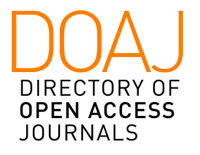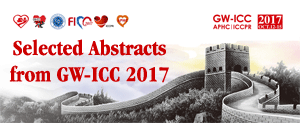[GW28-e0668]
Angiotensin-(1-7) Inhibits Angiotensin II-Induced Matrix Metalloproteinase-8 in Vascular Smooth Muscle Cells
Feng Zhang Sufang Li Juxian Song Hong Chen Feng Zhang
Department of Cardiology, Peking University People’s Hospital, Beijing, China
Objectives: Angiotensin II (Ang II) is a bioactive peptide involved in the development of cardiovascular disease, such as atherosclerosis, while Angiotensin-(1-7) (Ang-(1-7)) shows cardiovascular protection in contrast to Ang II. Matrix metalloproteinase-8 (MMP-8) is thought to participate in plaque destabilization though degradation of extracellular matrix, improving the development of atherosclerosis. We studied whether Ang-(1-7) can protect against atherosclerosis through regulating Ang II-induced MMP-8.
Methods: Ang-(1-7), Ang II and their antagonists was used to treat smooth muscle cells, and MMP-8 and p38 MAPK were analyzed by RT-PCR and Western blotting. ApoE−/− knockout mice were fed with a high fat diet and subjected to Ang II, Ang-(1-7), Ang II+Ang-(1-7) (± A779), and atherosclerotic plaques in aortic root were analyzed using immunohistochemistry. MMP-8 in blood serum was measured by ELISA.
Results: Treatment with Ang II resulted in an increase of MMP-8 mRNA and protein expression in vascular smooth muscle cells, whereas Ang-(1-7) alone had no effect. However, preincubation with Ang-(1-7) inhibited Ang II-induced MMP-8 expression, and this effect was abolished by the competitive antagonist of Ang-(1-7) at the MAS receptor. Furthermore, Ang II induced p38 MAPK activation, and this was inhibited by the presence of Ang-(1-7). P38 MAPK inhibitor SB203580 inhibited Ang II-induced MMP-8 expression, and also augmented the inhibitory effect of Ang-(1-7) on Ang II-induced MMP-8 expression. In ApoE−/− mice that developed atherosclerotic lesions, treatment with Ang-(1-7) significantly inhibited Ang II-induced MMP-8 both in atherosclerotic plaques and in blood serum, and this effect was abolished by Ang-(1-7) receptor antagonist A779. The atherosclerotic plaques in mice treated with Ang-(1-7) and Ang II appeared to be more stable with more type I collagen contents than those in mice treated Ang II.
Conclusions: Our results suggest that Ang-(1-7) plays an important role in protecting against atherosclerosis via counter-regulating Ang II-induced MMP-8.














